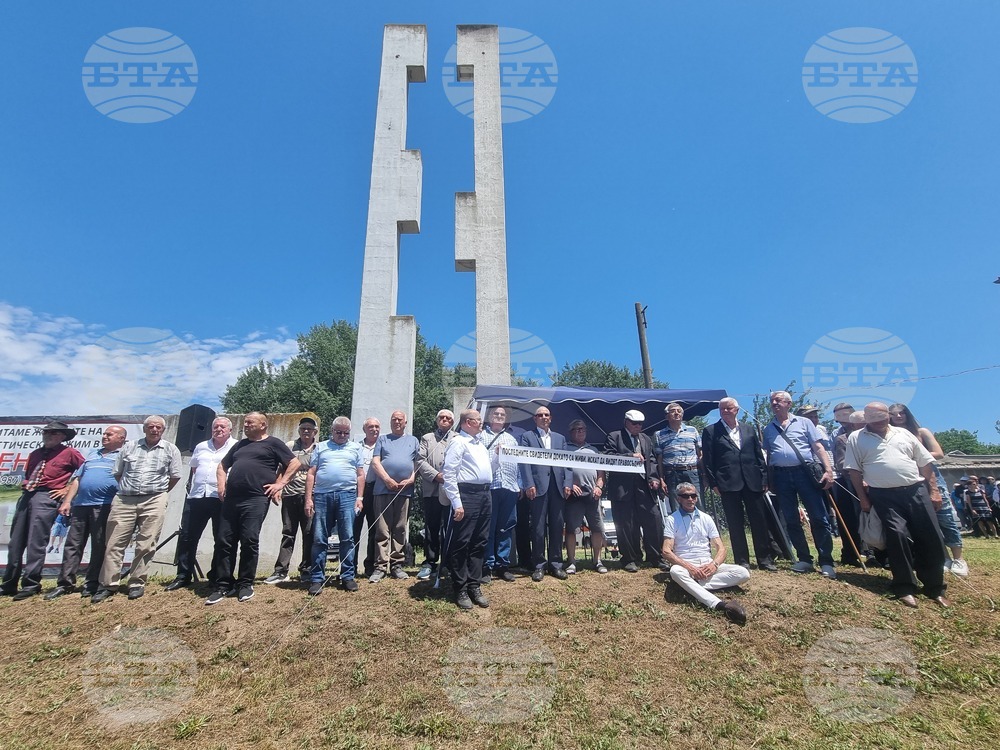site.btaAnnual Gathering Commemorates Belene Labour Camp Victims


An annual gathering commemorating the Belene labour camp victims of Bulgaria's former totalitarian communist regime was held on Persin Island in the Danube River on Saturday. The event brought together former camp inmates and members of their families, and victims' relatives, who keep memories about their fathers and grandfathers.
Hundreds of people visited the island on the hot first day of June to pay tribute to the camp victims. Survivors remembering their hardships in Belene took the opportunity again to urge the authorities to punish those responsible for the loss of hundreds of lives.
The Belene labour camp was operational between 1949 and 1953, and then reopened after the start of the Hungarian Revolution of 1956. Closed again in 1959, it was resuscitated in 1984 to confine 517 ethnic Turks who resisted their forcible assimilation by the government. The last surviving inmates were released in 1987.
One of those affected by the atrocities committed here decades ago is Shukri Mehmed, who travelled all the way from Bursa, Turkiye for the commemoration together with other survivors. Mehmed was a teacher of German. Forty years ago, during class in the high school in Krumovgrad, in the south of Bulgaria, he was taken out and brought straight to the Belene labour camp. He was 34. At that time, ethnic Turks in Bulgaria were targeted by the communist government in the Regeneration Process, an effort to assimilate them mainly by forcing them to adopt Slav names. Resistance was strong.
"The attempt to change the names of ethnic Turks was a criminal offence and a violation of human rights. Why would Bulgaria not be OK with my name and the names in my family?" Mehmed still wonders today. He spent 18 months in Belene, and then 27 months in internal exile in a village in the present northwestern region of Montana, where he worked as a cowherd.
After he was forced to leave Bulgaria in 1989 in a mass exodus of members of the Turkish community, he came back in 1992, after the democratic changes. Over the years, though, he made a home in Turkiye. Mehmed is adamant that, although decades have elapsed since the closure of the Belene labour camp, someone must be punished for the victims and the suffering of the other people affected by the regime, for the years of atrocity and uncertainty.
The commemorative event was opened by former president Petar Stoyanov. He said in a speech that Belene is synonymous with communist repression and communist brutality, which was essentially unnecessary. "It would be an unforgivable sin if our collective Bulgarian memory had no room for Belene and all other places symbolizing the horrible communist regime," Stoyanov said.
Author Teodora Dimova was a special guest at the gathering. She told the crowd: "Our very presence at this place of suffering, torture, humiliation and injustice is a test. It is as if the souls of the victims have put us to this test to make us stronger." She insisted that this page of Bulgaria's recent history should be read through and understood for what it is.
Members of the religious communities who lost lives in Belene said prayers. The crowd applauded a group of survivors who carried a sign saying: "The last surviving witnesses want to see justice served in their lifetime".
An exhibition of remembrance for the Belene victims was presented during the event.
Turkish Ambassador to Bulgaria Mehmet Sait Uyanik and Defence Minister Atanas Zapryanov were among the official guests. The gathering was organized by a group of private individuals, public figures and organizations.
/VE/
news.modal.header
news.modal.text